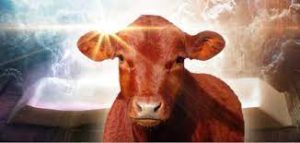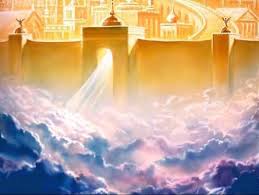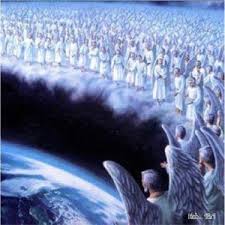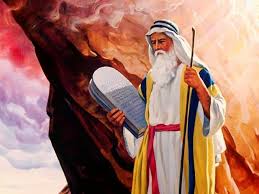Ar – The Superiority of Messiah in the Rest He Gives 3:7 to 4:13
The Superiority of Messiah
in the Rest He Gives
3:7 to 4:13
In his book Hebrews Through a Hebrew’s Eyes, Stuart Sacks writes that in the 1970s, when efforts were being made to reach the Jewish people of New York with Messiah’s message, bumper stickers appeared that simply read, “Jews for Moses.” The signs were intended to counter the Jews for Jesus organization that was evangelizing on the streets.
This situation was ironic. Moshe definitely spoke the coming of a greater prophet to whom Isra’el should listen to carefully (Deuteronomy 18:15, 18-19). Yeshua drew His critics’ attention to that fact, saying: If you believed in Moses, you should believe in Me, for he wrote about Me (Yochanan 5:46).
Many Jews refer to Moses as Moshe rabbenu, “Moses our teacher.” In Maimonides’ Principles of Faith, Moshe is said to have been the greatest of all the prophets, the one who received the Torah for Isra’el and then tirelessly conveyed its contents to the nation through forty years of wilderness wandering. All his words are considered to be true without question. Yet the people he led across the barren wastelands were called rebellious and stiff-necked, both by ADONAI and by the man chosen to lead them (Deuteronomy 9:7-13).
In the final analysis, the greatest of the prophets could not effect a change in the hearts of his people. Moses could lead Isra’el out of Egypt, but he could not accomplish a change in their basic tendency to spurn the Torah. Someone infinitely greater than Moshe would be given that task; someone eminently more qualified to fulfill YHVH’s promise to circumcise the stubborn heart of His people and all mankind (Deuteronomy 30:6).
Nothing is deemed more important than Moshe’s inspired teaching regarding Shabbat. In all of Isra’el’s history, nothing has been more avoided than chilul Shabbat, desecrating the Sabbath. Shabbat is referred to affectionately as a “queen.” Regulations have been established for properly submitting to her requirements. The mass of oral laws among Orthodox Jews is staggering (see the commentary on The Life of Christ, to see link click Ei – The Oral Law). As one rabbi said, “The rules of the Sabbath . . . are as mountains hanging by a hair; for Scripture is scanty and the rules many.” There are thirty-nine major types of activities that must be meticulously avoided on Shabbat, along with a host of subtypes springing from the larger ones.
It’s not just physical work that’s shunned, but ANY activity by which a human influences the environment. This is considered melakhah, labor forbidden on Shabbat. If one is to be yotse (meeting the religious requirements), such commonplace actions as turning on a light switch or lighting a match must be avoided.
In Yeshua’s day the hundreds of prohibitions often amounted to hair-splitting silliness. For example, one couldn’t “draw or boil” on the Sabbath or carry anything weighing more than two dried figs. Dragging a stick across the ground was considered plowing and was forbidden. A woman was forbidden to pluck a gray hair. If one arrived at home as Shabbat started at sundown, was it permissible to unload a donkey? Could an egg be eaten if it was laid on the Sabbath day, since it was the product of a hen’s work? The rabbis had endless debates on what was permissible and what was not.

Despite the restrictions Shabbat was to be used for all that is spiritually enriching and all that brings rest. It is a time, according to one rabbi, “to praise God and enjoy the best food and drink at home.” On this holy day, Jews greet one another with the words, Shabbat Shalom, an expression combining the idea of rest with that of peace, or wholeness. The Sabbath was intended to be a delight in ADONAI (Isaiah 58:14). It is a chance to contemplate the great things that God has done, as expressed in the song for the Sabbath, “For, ADONAI, what You do makes me happy; I take joy in what Your hands have made” (Psalm 92:4). Isra’el considered the Sabbath both a mark that distinguished her from other nations and a foretaste of the future days of the Messiah, a time of peace for a troubled world. A time of rest. It is no surprise, therefore, that the prayer known as the havdalah (separation) closes each Sabbath-day’s worship, “Praise be to You, ADONAI our God, King of the world, who does distinguish the sacred from the profane, the light from the darkness, Isra’el from all other nations and the seventh day from the days of work.”
Although the prayer celebrated God’s creation of the blessed day, the rabbis teach that if all the Jews kept the Sabbath rigorously, ADONAI’s messianic redemption would quickly follow. Consequently, the Jewish people’s works, rather than the works of the God of Abraham, Isaac and Jacob, soon occupied center stage.
Nothing made the Pharisees angrier with Yeshua than what they considered to be His total disregard for the Oral Laws governing the Sabbath. Jesus never violated one of the 613 commandments or prohibitions of the Torah, but He didn’t recognize the Oral Law because He knew it was the traditions of men (Mark 7:8). Although He could be found regularly in the synagogue where He read and taught the Scriptures of Shabbat, His detractors believed He was continually flouting the Oral Laws (which the rabbis considered just as sacred as the Torah of Moshe) of this sacred day.
But the truth is, the institution of Shabbat had come to be unduly exalted, even against rabbinical warning, “Shabbat is given to you, but you are not given to Shabbat.” Yeshua stated the same truth this way: The Sabbath is made for man, not man for the Sabbath (see the commentary on The Life of Christ Cv – The Son of Man is Lord of the Sabbath).
The messianic congregation of Hebrews to whom the author addressed, recalled that the Pharisees’ main complaint about Yeshua’s Sabbath “violations” centered on His healing of the sick. Although the TaNaKh did not forbid healing on the Sabbath, the rabbis taught that healing was work and therefore permissible only if the individual’s life was at stake. Messiah could often be seen healing the chronically afflicted and handicapped on Shabbat. On one occasion the eyewitness to the healing of a man with a shriveled hand reported that Jesus was deeply distressed at their stubborn hearts (Mark 3:4-5).
But if human compassion would not support Jesus’ acts of kindness, a Higher Authority would. The Master taught that all of His acts were, in truth, a direct expression of the Fahter’s love for His people. Yeshua only did what He saw His Father doing (John 5:19).
Christ stressed how appropriate the act of healing was on the Sabbath, pointing to the redemptive significance of that day. Had not the Torah commanded Isra’el to keep Shabbat in remembrance of the fact that God had broken their cruel chains? You are to remember that you were a slave in the land of Egypt, and ADONAI your God brought you out from there with a strong hand and an outstretched arm. Therefore, ADONAI your God has ordered you to keep the day of Shabbat (Deuteronomy 5:15 CJB).
The same mighty YHVH who freed the captives was doing it once more, now breaking the Adversary’s spiritual hold on souls and delivering the physically handicapped and diseased. How appropriate for the sick to be healed on the Sabbath day, as Christ’s deeds and declaration revealed: This woman is a daughter of Avraham, and the Adversary kept her tied up for eighteen long years! Shouldn’t she be freed from this bondage on Shabbat (Luke 13:10-16)? Jesus further affirmed His right to release the oppressed by virtue of the fact that He was Lord of the Sabbath, leaving no doubt about the divinity of Him through all things were made (Mattityahu 12:1-8; Yochanan 1:3 and Hebrews 1:2).
Hebrews reminds us that there is more than one dimension to our Sabbath-rest, since neither Moshe nor his successor, Joshua, could provide God’s full measure of rest for Isra’el. So there remains, then, a Sabbath-rest for the people of God (4:9).90

















